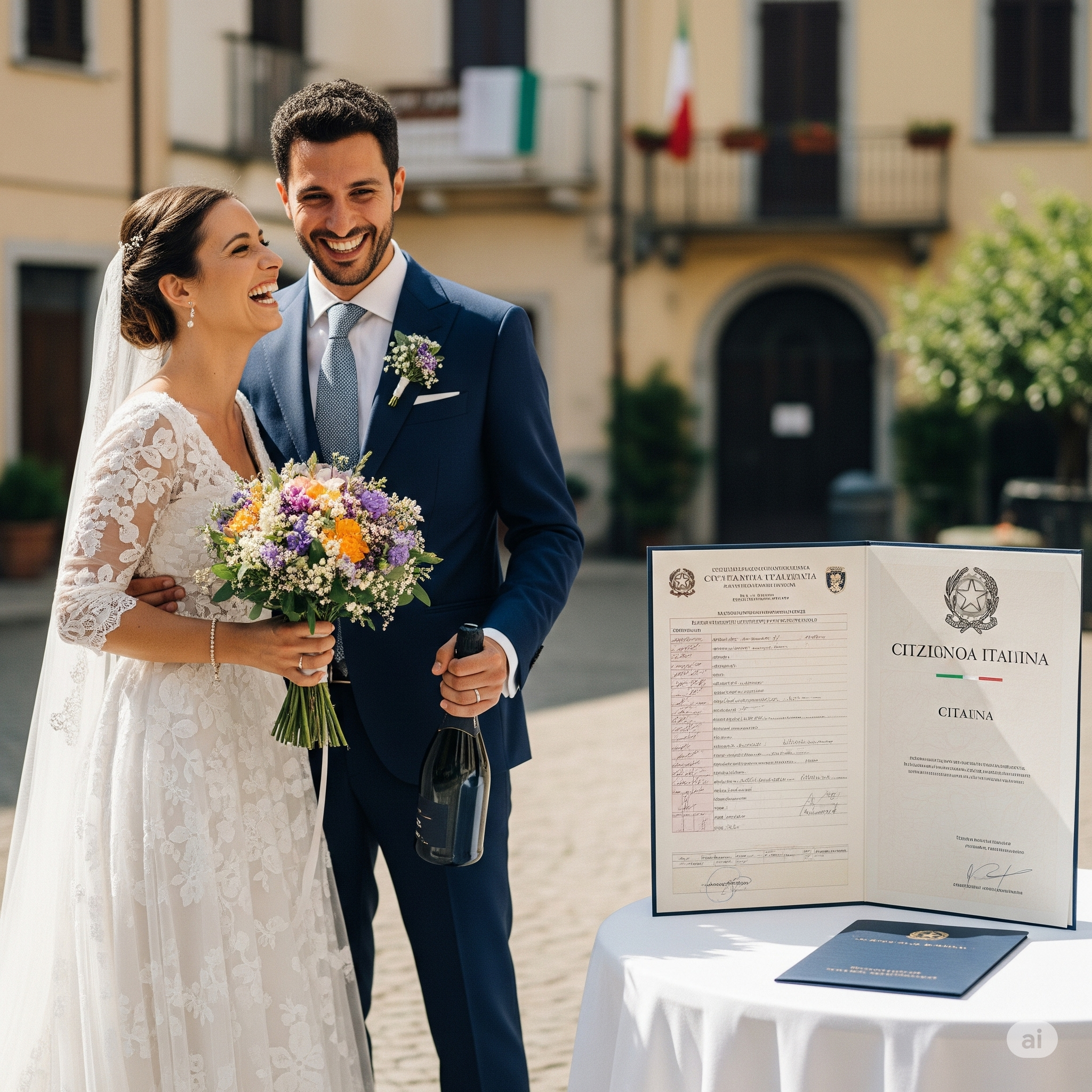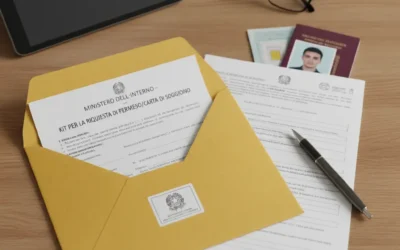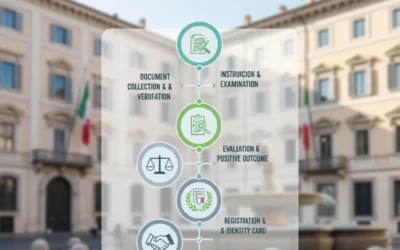If you’re considering applying for Italian citizenship by marriage, it’s essential to understand why acting now is more important than ever.
In March 2025, the Italian government announced the introduction of a legislative reform to amend Law no. 91/1992 on citizenship. At the same time, it issued Decree-Law no. 36/2025, which was later converted into Law no. 74/2025 (the so said “new” Italian citizenship law, introducing substantial changes to the current citizenship framework. Draft Law (DDL, which stands for Disegno di Legge) n. 1450, currently under Senate review, is expected to amend and restructure also the requirements for acquiring Italian citizenship by marriage.
New Italian Citizenship Law: by Marriage. What Could Change with DDL 1450
The Current Law: Citizenship by Marriage Without Residency
Under current Italian law, foreign nationals married to Italian citizens can apply for citizenship after two years of marriage if living in Italy, or after three years if living abroad. These timeframes are halved if the couple has children together, whether biological or adopted. Today, physical residence in Italy is not mandatory to apply. The only requirements are proof of a valid and ongoing marriage, sufficient knowledge of the Italian language (B1 level or higher), and a clean criminal record. Applications are submitted online to the Ministry of the Interior and should be processed within 24 months (read our guide on requirements and documents-
What the Draft Law DDL 1450 – Italian Citizenship Law- Proposes
The draft law DDL 1450, submitted to the Italian Parliament in April 2025, aims to reform the citizenship process across the board—including for applicants through marriage. The most significant proposed change is the introduction of a mandatory period of physical residence in Italy before applying for citizenship of two years. This requirement would apply to all applicants, regardless of their connection to an Italian spouse. Currently, many non-Italian spouses apply from abroad. If this provision of DDL 1450 is approved, even those who have been married for many years would need to relocate to Italy before becoming eligible to apply for citizenship.
Longer Processing Times Also on the Horizon
In addition to the new residency requirement, DDL 1450 proposes an extension of the application review period. While the current law sets a 24-month deadline (with a maximum extension to 36 months), the new bill would allow up to four years for authorities to process each application. This could mean significantly longer wait times and uncertainty for applicants.
What This Means for You
It’s worth to point out that once you have applied, the application should be processed under the rules in place at the time, even if they change shortly after.
If you are married to an Italian citizen and are eligible to apply under the current legal framework, now may be the time to act. Once DDL 1450 passes, applications will become more demanding, and many people currently eligible may have to wait years longer to meet the new residence requirement.
At Legally Italy, we help you navigate every step of the Italian citizenship process, from assessing your eligibility to preparing and submitting your application with precision, as well as following up with the relevant authorities.





